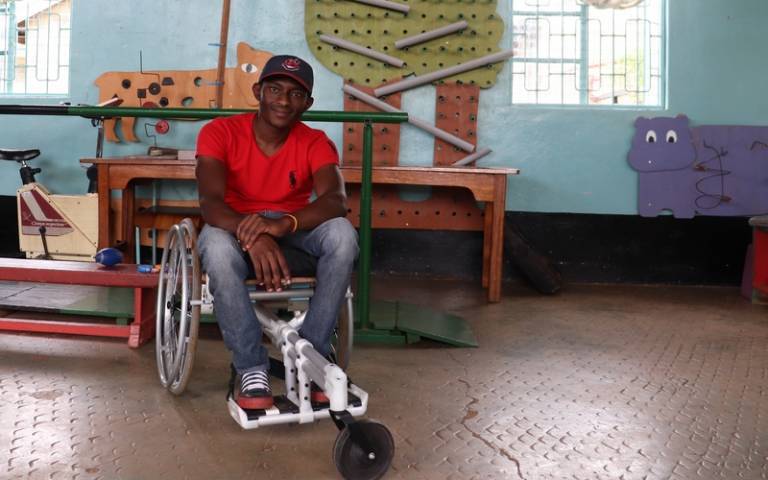Case study: Solving everyday challenges for people with disabilities
25 January 2021
UCL’s community of staff and students is playing a leading role in responding to the challenges set out in the UN’s Sustainable Development Goals (SDGs). Read below a case study of the work of the Global Disability Innovation Hub (GDI Hub), which will move to UCL East in 2023.

Almost a billion people around the world need assistive technology (AT). Wheelchairs, prosthetics, hearing aids, glasses and digital technologies are critical in enabling equal access to employment, education and independence for people with disabilities.
The UCL-based Global Disability Innovation (GDI) Hub is leading AT2030, a £20 million UK aid-funded programme to improve access to AT for millions of people worldwide. The GDI Hub is working in partnership on the programme with UN agencies (WHO, UNESCO and UNICEF), global academic institutions and non-governmental organisations (NGOs). It brings together partners who have not traditionally worked in AT with those who have, to test new ideas with users, experts and innovators.
“It is estimated that by 2050 two billion people would benefit from AT, yet 90% will not have access,” says Professor Catherine Holloway (UCL Computer Science), Academic Director of the GDI Hub. “AT2030 is changing that.”
Read the full case study of how GDI Hub is helping achieve SDG 10
 Close
Close

